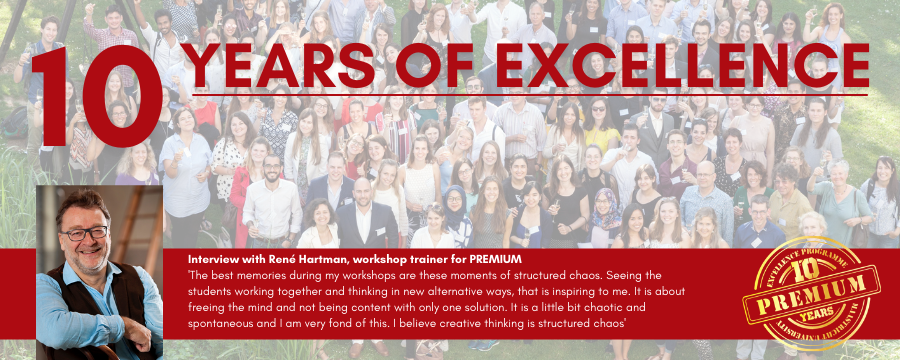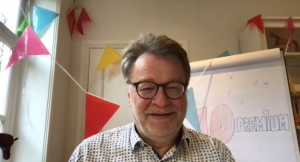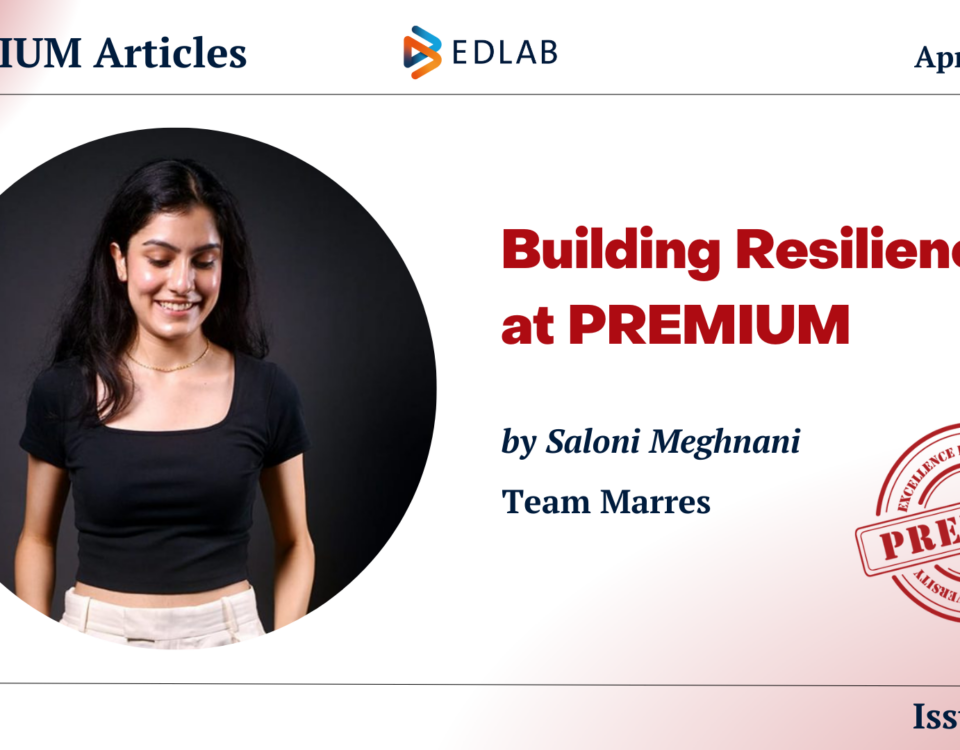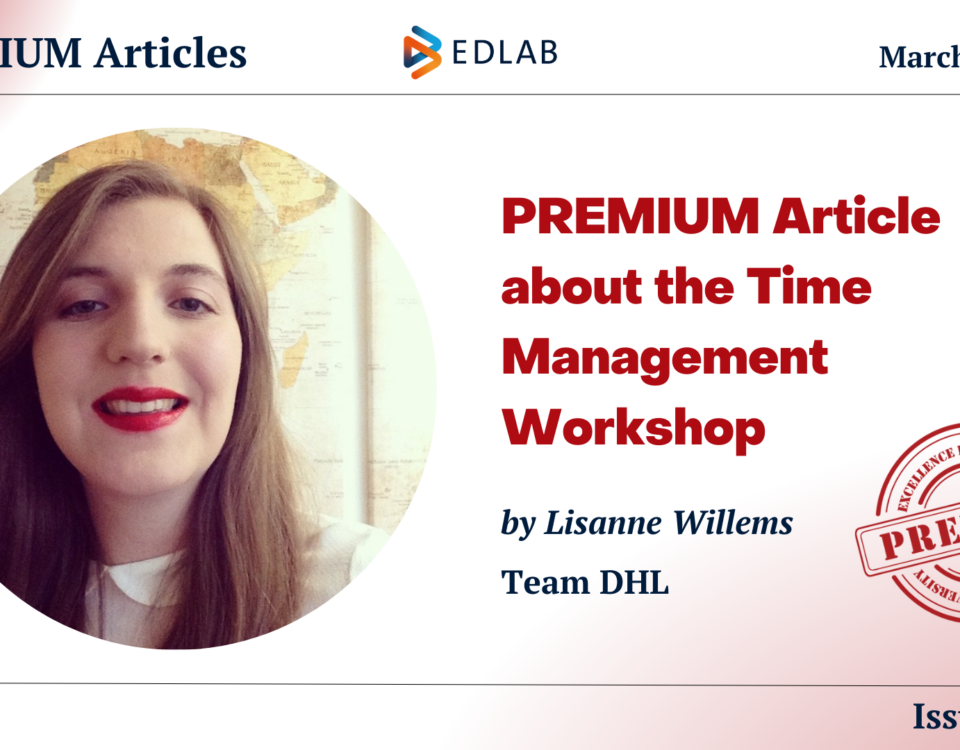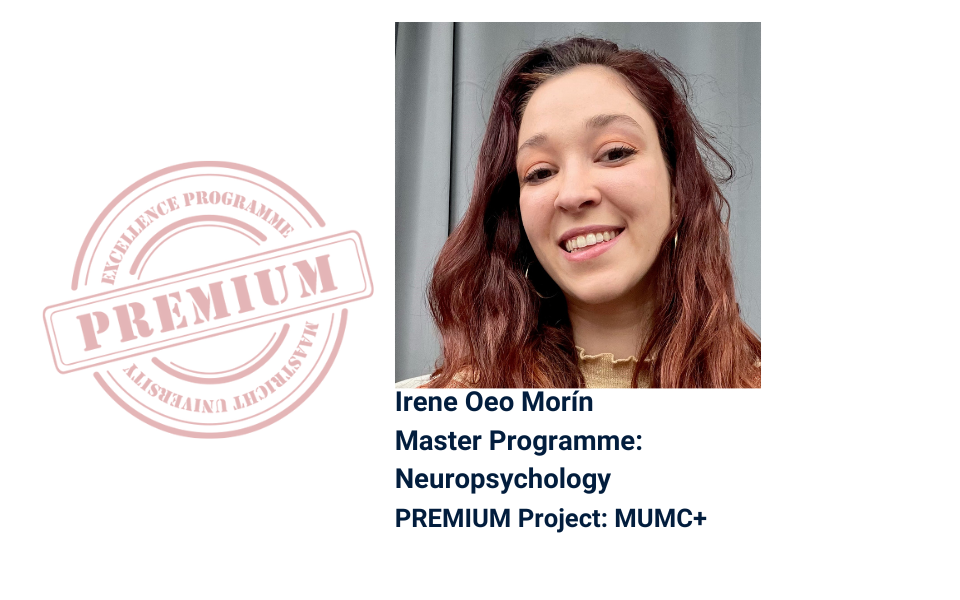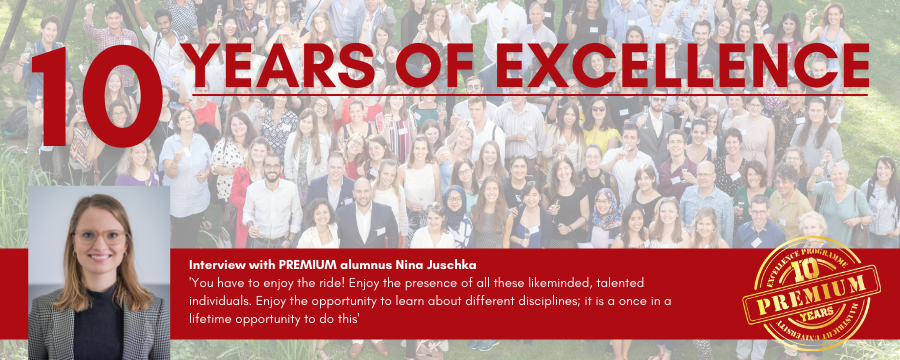
10 Years of PREMIUM – A decade of Excellence
04-05-2021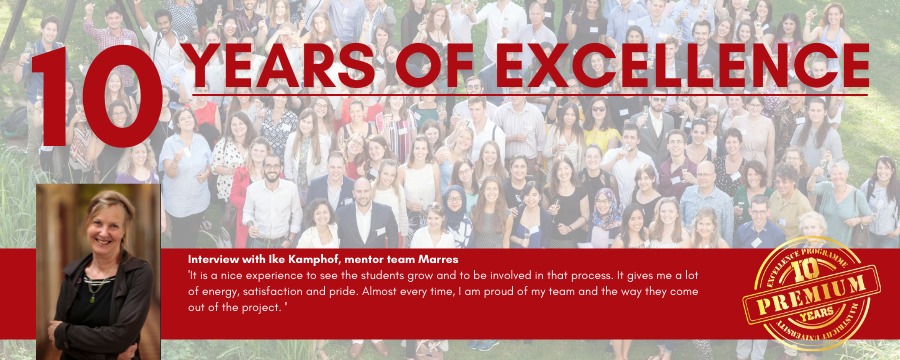
10 Years of PREMIUM – A decade of Excellence
02-06-2021In honor of 10 years of PREMIUM, we look back on what a decade of PREMIUM has meant for our alumni, coaches, mentors, clients, and trainers.
How do you ensure that your work remains innovative? René Hartman knows the tricks and tells you all about it in this one-on-one article!
At the InnovatieWerkplaats, René and his colleagues are used to switching on their creative thinking and creative problem-solving skills. Therefore, it comes as no surprise that the InnovatieWerkplaats is often contacted by companies and governments for advice on how to solve problems creatively. ‘These problems that need solving can be anything related to new policies, projects, products and so on’. To help and cater for a client’s needs, René gives tailor-made training and workshops to tackle certain topics.
This is also how René initially got involved in the PREMIUM programme. ‘I think it was back in 2013 when I first got contacted by a coach of a student project team. The project team’s research focused on making the chicken industry more sustainable and struggled on transferring the analytical part of the research into recommendations for the client. I facilitated a workshop with these students to help them along in the process. In 2014, I got involved in another two workshops on Creative Problem Solving for PREMIUM project teams.’ These workshops enthused PREMIUM students to use Creative Problem Solving techniques and taught them the necessary skills and tools. ‘In 2015, I was asked to come on board as a workshop trainer for the programme’.
Meanwhile, since both EDLAB and the InnovatieWerkplaats both have innovation at heart; two new workshop topics were initiated for the PREMIUM programme. PREMIUM students can now benefit from a Design Thinking and Project Based Working workshop both given by René.
In what way has your PREMIUM workshop developed itself over the past few years?
‘The workshop has always been a good mix between techniques and methods. It is all about knowing and using the right tools and the right skills. However, and this is maybe new, I try to let students focus on the technique of finding their switch for creativity. I like to make students aware that they can find and use this switch whenever they want to go for a more creative solution. A skill that will help them find better solutions in their professional lives as well. It is all about having an open mind to doing things differently. I would say that the workshop has found more balance on the techniques and methods on the one hand and the open-mindedness and awareness on the other hand.’
This creativity switch does sound interesting. – How do you make sure that students turn on this switch during your workshop?
‘By teasing! For example, showing the students pictures that seem natural or self-evident at first but then asking them to have another close look at the same picture will help in becoming more creative. I challenge students to get a different perspective than the one they are used to. So teasing is kind of my signature mark I would say.’
Has the current working from home situation influenced or changed your workshop?
‘When switching to online, I tried to not change too many things about the set-up and contents of the workshop. For example, I always ask students to introduce themselves briefly and ask them funny ice-breaking questions such as ‘what is your secret pleasure?’. There is no difference here, being it online or offline.
However, there is a huge difference in organizing workshops now that it is conducted online. You have to be very strict and mindful of the time. An online workshop is 2,5 hours max and an on-site workshop is 4 hours. Meaning I have to skip one-third of the contents or choose to do it differently. Also, my script for the set-up and contents of the workshop has changed as well. For on-site workshops, I have a script that is set-up by every 15 minutes. For the online workshop, this script is by every 5 minutes. The organization of an online workshop is very strict. Of course, in a way it is challenging as well so I like to do those online workshops. It all turned out quite well and I am happy that I switched to online right away. ’
What is unique and special to working with PREMIUM students?
‘One thing that strikes me every time is the eagerness to learn and to understand how things work. Immediately, I receive questions such as; ‘where is this switch? How should I put it on?’ The eagerness is always there and this makes my work as a teacher very enjoyable. The other thing that I find is that PREMIUM students are very quick thinkers. They understand right away what the background and the motivation for a specific assignment are. They do not hesitate and ask questions, but eagerly start because they want to learn. ‘
Where do you find your inspiration for the contents of your workshop, in a way that the content of your workshop remains inspiring and interesting for students?
‘For starters, by talking to students once the workshop has ended and taking note of what they are saying. There are always some students who stay after I have finished giving the workshop and want some extra tips or literature so that they can proceed. This is also when I take the time to talk to students.
What is more, every now and then I meet up together with a team of Dutch and Belgian workshop facilitators. Here, we exchange lots of information, methods, and tools. We also like to develop things together.
Lastly, I find my inspiration on the internet as well. There are certain websites such as Fast Company and the Verge, where I find out what is happening in the United States.
I must say I am also lucky to get inspiration and information from my kids, who are students themselves, so I talk to them regularly. In fact, I did my first Zoom workshop together with my kids! ‘
You have already provided workshops during PREMIUM multiple times: what is your best PREMIUM memory so far?
‘The best memories during my workshops are these moments of structured chaos. You see things happening in the classroom or online and this is where I get my inspiration. For example, in the Design Thinking workshops, students are working in teams of two. They have to listen to each other and try to come up with solutions and eventually build small prototypes. Seeing those students working together and thinking in new alternative ways, that is inspiring to me. It is about freeing the mind and not being content with just one solution; you need multiple solutions. This is also when the workshop is most successful. It is a little bit chaotic and spontaneous and I am very fond of this. I believe creative thinking is structured chaos.’
Curious to see an example of this ‘structured chaos’? Here you will find an impression of the Design Thinking workshop given by René Hartman for the PREMIUM programme!

